What Causes Vaginal Itching? Find the Solution Here!

HIGHLIGHTS
Vaginal itching is a problem that many women have experienced, often leading to concern and discomfort. The symptoms can range from mild to severe itching. Some women experience it intermittently, while others may have discharge or odor as well.
The causes of such symptoms include fungal infections, bacterial infections, sexually transmitted infections, and everyday behaviors. For instance, itching can occur after sexual intercourse, shaving the genital area, or using vaginal douches, which can disrupt the balance of the intimate area and lead to more severe itching and potential signs of various diseases.
Treatments for Itching include changing behaviors, maintaining proper hygiene, be cautious with products that could harm the genital area, and considering dietary changes. However, the best course of action is to consult a doctor for a thorough examination.
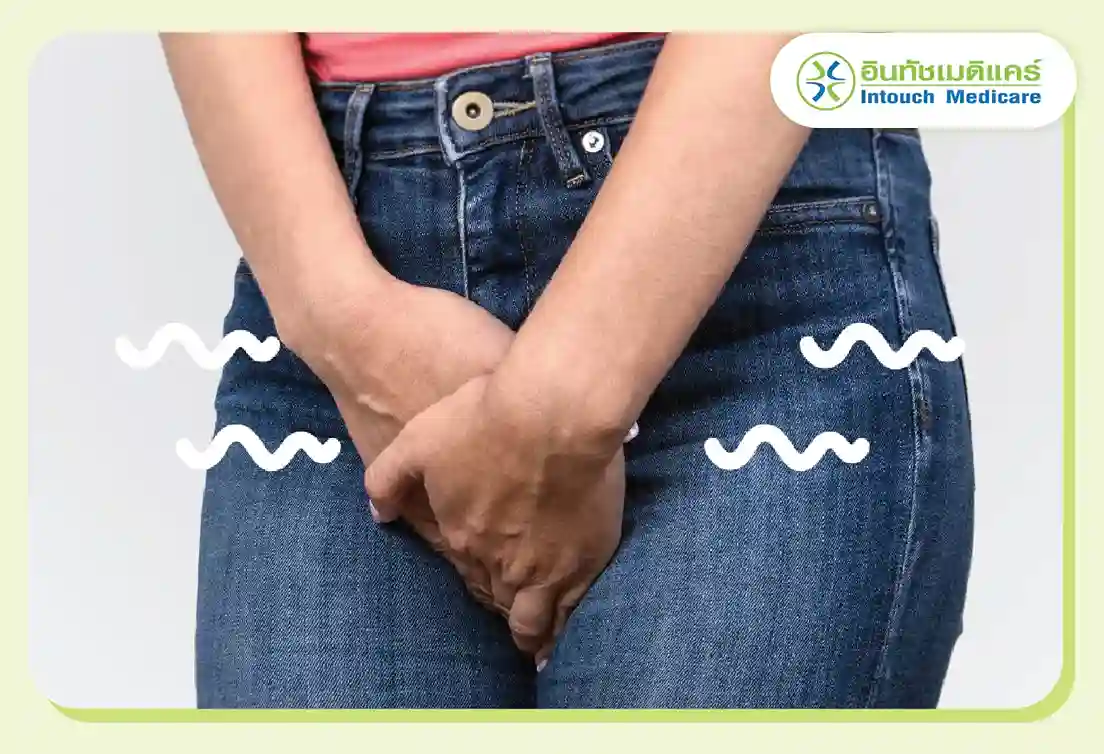
Important information about vaginal itching:
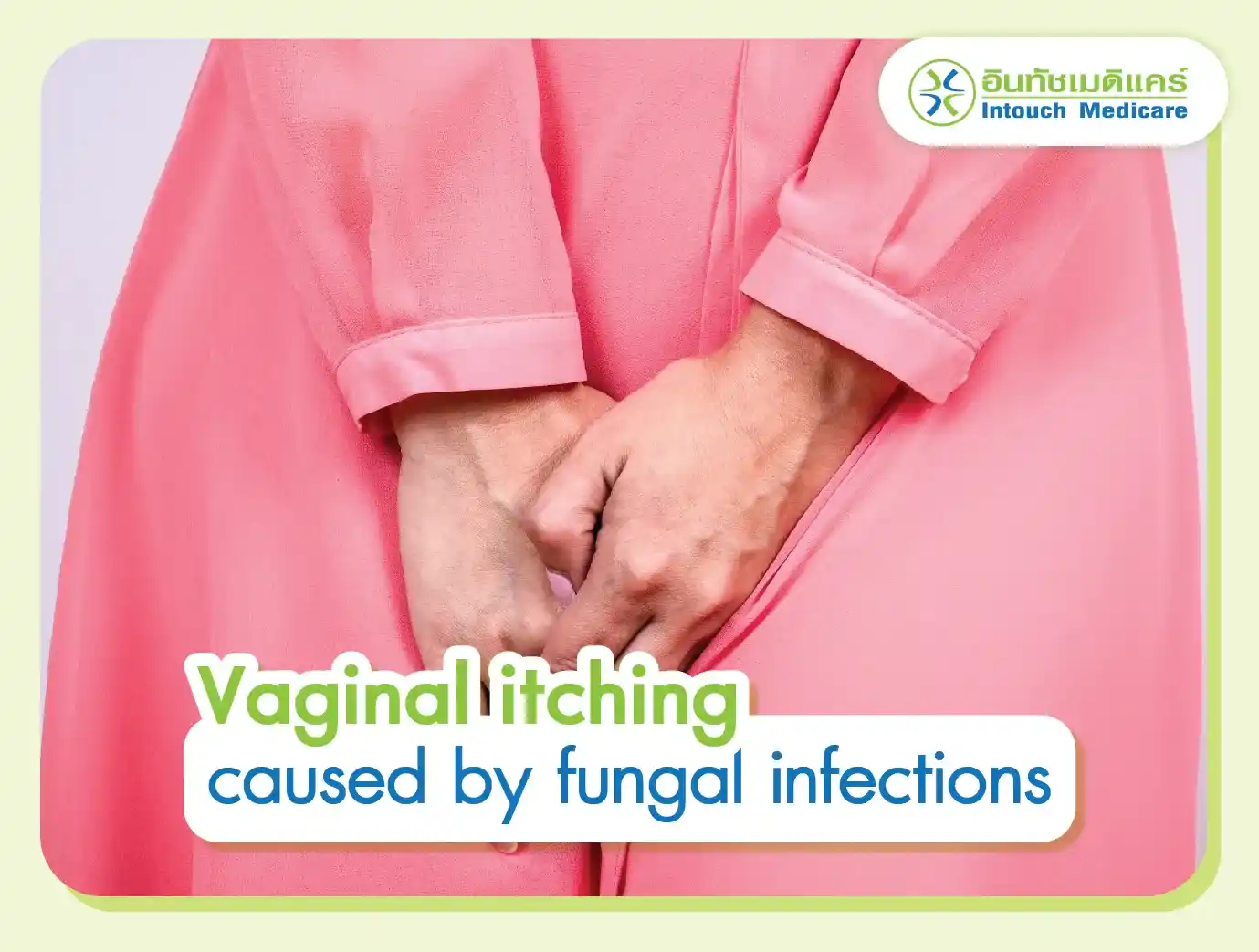
Fungal Infections
Itching around the vaginal opening and internally may be due to fungal infections or parasites. This is common and can lead to itching, burning sensations, and possibly discharge that may be clumpy.
External genital itching in the pubic area may be caused by scabies or lice.
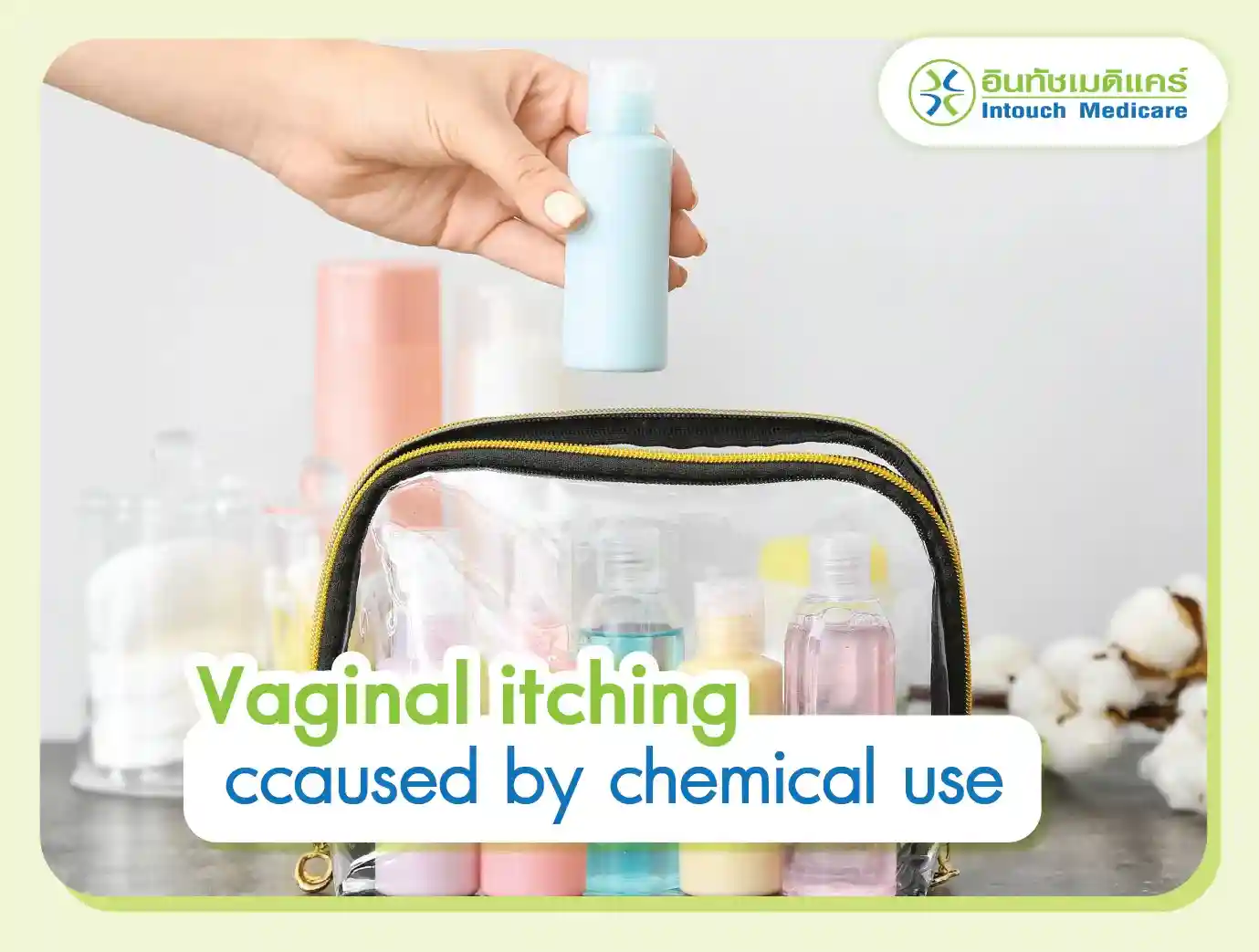
Chemical Use
Using intimate cleansers that contain fragrances or herbal douches for vaginal or external washing can lead to irritation. The initial remedy is to stop using these products and switch to plain water for cleaning, avoiding internal douching.
Prolonged use of antibiotics can destroy beneficial bacteria that help control fungal growth in the vagina.
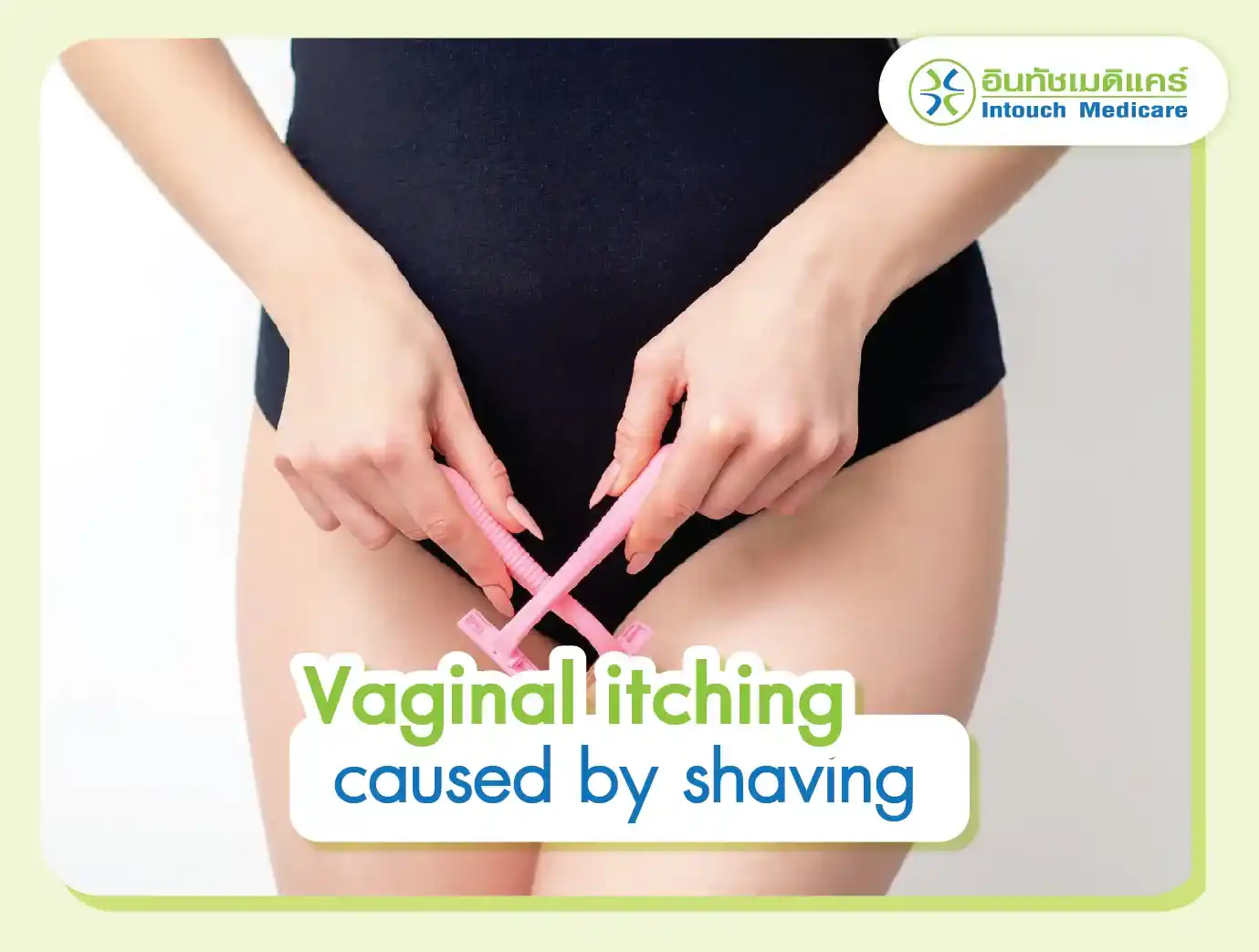
Shaving
External genital itching may occur after shaving the pubic area, leading to discomfort as the hair starts to regrow.
Some individuals experience severe itching after shaving. It is advisable to switch to trimming or waxing instead of shaving.
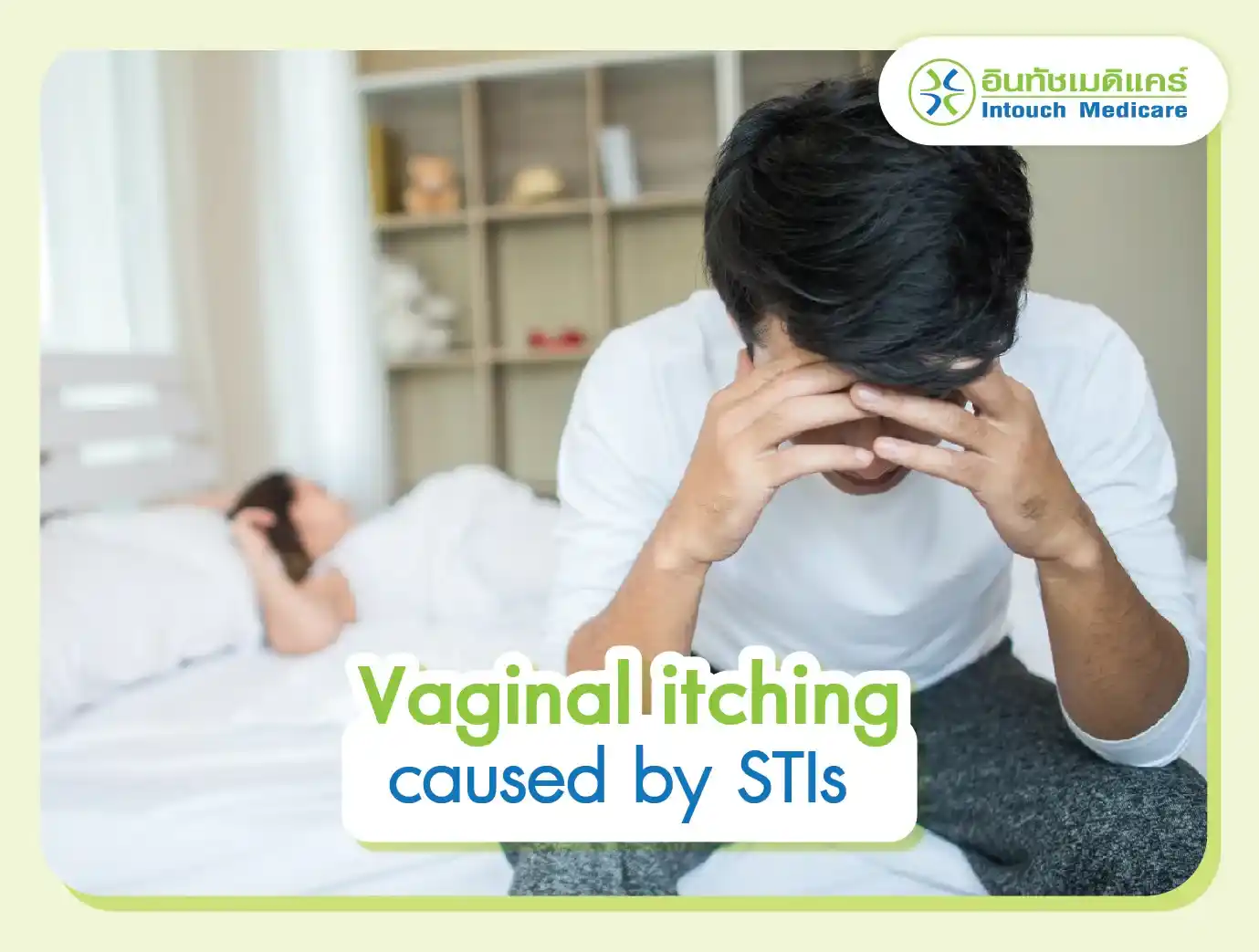
Sexually Transmitted Infections (STIs)
Unprotected sexual intercourse increases the risk of STIs such as vaginal trichomoniasis, gonorrhea, chlamydia, genital warts, or herpes. These infections can cause itching along with other symptoms like yellow discharge or green discharge, burning during urination, or pain during intercourse.
|
There are generally three types of itching inside the vaginal area:
Non-infectious Itching
This occurs due to irritation of the genital skin from various causes, such as:
Friction between underwear and the intimate area due to tight or overly restrictive clothing, leading to moisture buildup.
Itching from allergic reactions or irritation caused by chemicals, such as soaps, detergents, fabric softeners, or scented sanitary products.
Shaving the genital area.
Stress.
Itching with Associated Infections
Itching in this case is more noticeable and often accompanied by other symptoms, which vary according to the type of infection:
Bacterial infections may cause discharge with a foul odor, burning, and aching.
Fungal infections typically present with discharge resembling yogurt and itching.
Sexually transmitted infections (STIs) may cause discharge with a foul odor, burning, itching, or the presence of sores, bumps, or lesions in the genital area.
Itching Due to Pre-existing Conditions
Itching can result from certain pre-existing conditions such as diabetes, high blood pressure, allergies, or skin conditions like psoriasis or eczema. In these cases, itching might be just one of the symptoms of the underlying disease.
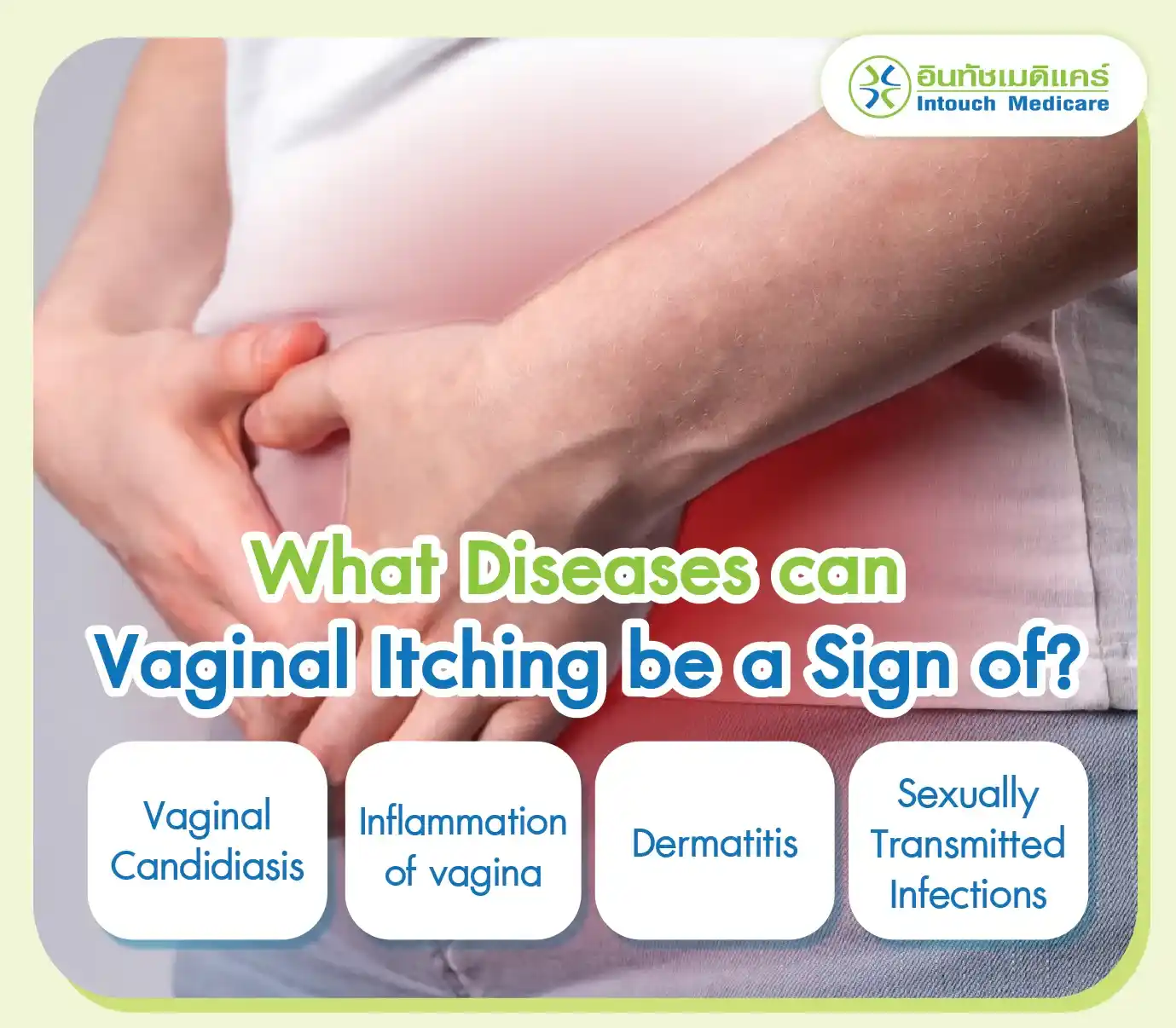
What diseases can vaginal itching be a sign of?
Vaginal Candidiasis (yeast infection)
Bacterial Vaginosis
Dermatitis
Sexually Transmitted Infections (STIs) such as Gonorrhea, Chlamydia, or Herpes
Gently Clean the Private Parts
Clean the private parts with plain water and use a mild soap. Avoid using cleansers more than once a day and stop using them if itching occurs, as they may dry out the vagina and disrupt its balance.
Use Condoms Every Time You Have Sex
Always use condoms and it's advisable to urinate before and after sexual intercourse, and to wash the external genital area every time after sex.
Resist the Urge to Scratch When Itchy
Although it can be quite challenging, remember that scratching can worsen the condition, leading to inflammation or scarring.
Wear Breathable Underwear
Opt for breathable cotton underwear to reduce moisture and friction. Wash underwear with gentle products, and if possible, wash them separately as an additional precaution.
Avoid Using Scented Toilet Paper
Women who use toilet paper should choose clean, high-quality paper. Dirty or scented toilet paper can cause irritation, leading to itching or abnormal discharge and potentially severe infections.
Avoid Using Internal Feminine Products
Change tampons frequently and avoid leaving them in for extended periods, as they can become breeding grounds for bacteria.
See a Doctor for Internal or Gynecological Examinations
If symptoms persist, visiting a doctor for an internal examination and cervical cancer screening can help identify the cause quickly and improve the effectiveness of treatment.
Learn more about how doctors diagnose and treat vaginal itching here

Sores around the vaginal area: painful, burning, swelling may result from irritation or infection.
Urination problems: pain or burning sensation during urination.
Abnormal vaginal discharge: discharge that is green, yellow, has an odor, is clumpy, or in large amounts. This requires investigation for causes like fungal or bacterial infections.
Severe itching: significant swelling, redness, scaly skin, possible skin cracks, and often worse at night, disturbing sleep.
Pain or discomfort in the intimate area: feeling sore or tight.
Pain during intercourse: discomfort or fever may accompany the pain.
Symptoms persist after self-treatment.

![]()
From my medical experience, I have frequently encountered patients with vaginal itching caused by yeast infections, often in cases where the condition has recurred despite previous treatments or self-medication.
However, proper antifungal treatment and behavioral recommendations can effectively resolve the issue and prevent recurrence.![]()
Nattawadee Sriborisut, MD
(full-time physician at Intouch Medicare Clinic, Din Daeng Branch)

For internal vaginal itching from bacterial discharge: Metronidazole, Doxycycline, Azithromycin
For itching from fungal discharge: Clotrimazole vaginal suppositories
For external vaginal itching: might be caused by dermatitis or certain infections. Commonly prescribed are TA Cream, BV Cream, or Clobetasol cream.
|
Foods that Help to Relieve Itching
What should you eat to help relieve severe vaginal itching? The following foods can be beneficial:
Yogurt contains beneficial bacteria, such as Lactobacillus, which helps reduce fungal infections and balance the bacteria in the vagina.
Fresh vegetables and fruits are high in vitamin C. They are good for health and help to prevent vaginal dryness (a cause of genital itching) and reduce inflammation.
Garlic has antimicrobial and antifungal properties that help to treat fungal infections in the genital area.
Cranberry juice helps to kill bacteria in the urinary tract and also reduces bacterial levels in the vagina.
Whole grains and nuts are high in vitamin E. These help to prevent vaginal dryness and provide minerals that support regular menstrual cycles and reduce stress.
Salmon is rich in omega-3 fatty acids, which help to reduce inflammation.
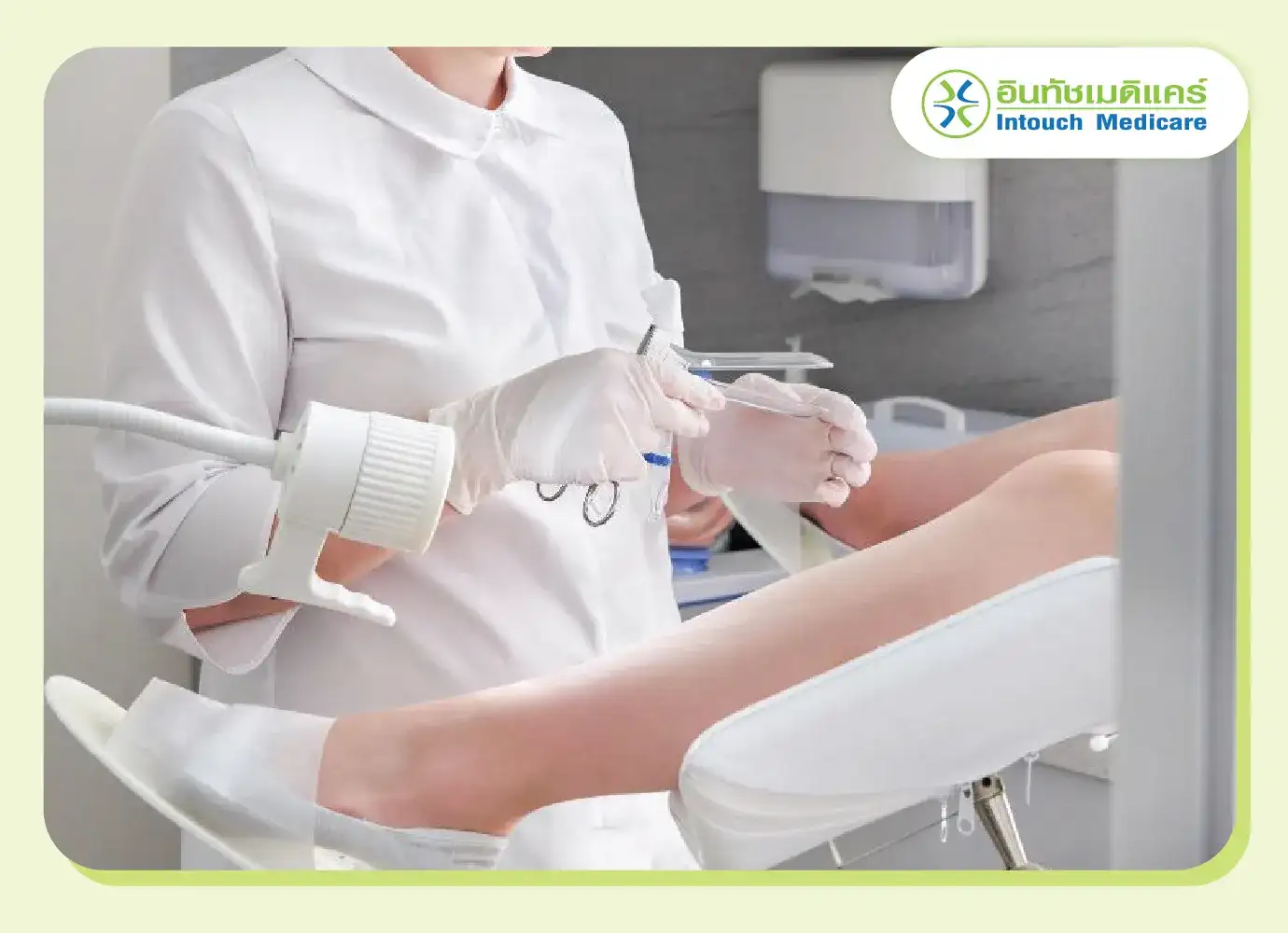
The intimate area is an important part of the body, but many women suffer from physical and emotional distress due to persistent conditions or infections.
We hope the treatment guidelines provided in this article will encourage women to overcome embarrassment and seek medical care for better health.
Reference information
Dr. Chanyavalee Srisukho, M.D. 2007. Speaking from female language. The truths that women should know and men must read , Books To You Publishing House
Do you know yourself well ? . Sexualy wellbeing promotion program, Women's Health Understanding Foundation, Thai Health Promotion Foundation (ThaiHealth)
how to take care of your internal ? Part 2. Assoc. Prof. Dr. Wittaya Thithaphan, Department of Obstetrics and Gynecology (Faculty of Medicine Siriraj Hospital), Faculty of Medicine Siriraj Hospital.
Vaginal Fungus. Lecturer Dr. Janechit Chayachinda, Unit of Gynecological Infectious Diseases and Sexually Transmitted Diseases, Department of Obstetrics and Gynecology (Faculty of Medicine Siriraj Hospital).
Interesting article
Complied by Onuma Peanphon, MD / Nattawadee Sriborisut, MD / Jittiwat Amnouypon, MD
Last edit : 29/08/2024
Images may be used without prior permission exclusively for educational or informational purposes, as long as proper credit is given to intouchmedicare.com.







